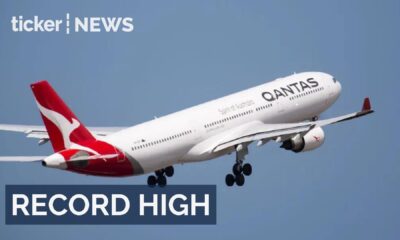News
Did the Commonwealth Games end with the Queen?
News
Iran live updates: Trump claims Khamenei dead as Iran insists he remains in command
News
U.S. and Israel strike Iran as missiles hit Gulf bases and oil surges
U.S. and Israel launch major military operation against Iran; tensions rise as conflict escalates, impacting global markets.
News
Iran warns ships to avoid Strait of Hormuz
Iran warns ships to avoid Strait of Hormuz amid rising tensions and military buildup in the region
-



 Tech4 days ago
Tech4 days agoOpenAI moves to replace software giants with AI products
-



 Money3 days ago
Money3 days agoAustralia’s inflation report and Nvidia earnings impact explained
-



 Tech2 days ago
Tech2 days agoMeta launches lawsuits over alleged scam advertising operations
-



 Tech3 days ago
Tech3 days agoNvidia earnings soar as AI drives 75% revenue growth
-



 News3 days ago
News3 days agoQantas announces 8,500 jobs and frequent flyer changes
-



 News22 hours ago
News22 hours agoU.S. and Israel attack Iran, escalating regional conflict
-



 News15 hours ago
News15 hours agoIran warns ships to avoid Strait of Hormuz
-



 News22 hours ago
News22 hours agoCrude oil prices spike amid U.S.-Israel military action




